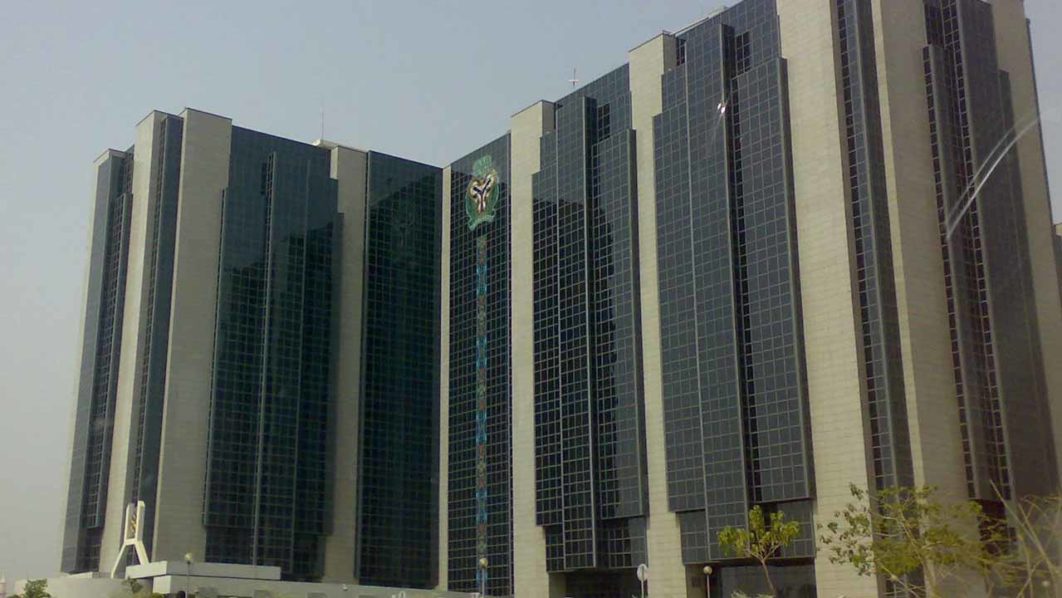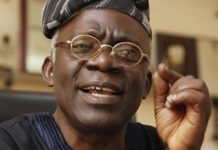Apex bank wants FG to sustain border closure By Emeka Anaeto and Babajide Komolafe
CBN Governor, Mr Godwin Emefiele, while speaking at a joint press conference with the Minister of Finance, Zainab Ahmed, at the just concluded annual meeting of the World Bank/International Monetary Fund (IMF) in Washington DC, said rather than impeding investment, the restriction on forex supply to some items should encourage investors to set up manufacturing firms for those items in Nigeria.
He was responding to comments last Tuesday, by Oya Celasun, Division Chief, Research Department, IMF, who stated that the forex restrictions imposed on 43 items by the CBN, is holding back foreign investments into Nigeria.
Highlighting the measures required to boost economic growth in Nigeria, while speaking at a press briefing on Tuesday Celasun, had said: “Other areas are the need for tight monetary policy and simpler unified exchange rate system. Foreign exchange restrictions have also been distorting public and private sector decisions and holding back investments.”
Reacting, Emefiele said that the restrictions are on items that can be locally produced and will encourage investors to tap into the huge market represented by the nation’s population of 200 million people.
He stated: “I say that (IMF claim) is false. If you feel that we are restricting access to forex, for the importation of items that can be produced in Nigeria.
“If you are a foreign direct investment (FDI) that is interested in doing business in Nigeria, I will say instead of you facilitating the import of these items into Nigeria, we want you to come and produce it in Nigeria.
“Nigeria is a market of over 200 million people, so you do not have a choice than to come, bring your investment plans and equipment, come and produce that item in Nigeria so that Nigerians can consume it, you will make your profit and take your dividend out of the country. So, I disagree with that position.”
FG should sustain border closure
In the same vein, the CBN Governor, stressed the need to sustain the closure of the country’s land border, insisting the border closure is critical to boosting local production and employment generation which is necessary to enhancing the economic growth in the face of the slow down in the growth of the global economy.
He said: “I would caution and appeal that before the border is opened. Some firm decisions and agreement must be reached where protocols must be obeyed when we say we want this to stop, other countries must respect what we want because it is also meant for the growth and the good for our country.
Explaining how smuggling activities across the land borders undermine local production, he said: “Two weeks to the closure of the border, I was called by rice millers, not less than five rice milers were complaining that each of them had nothing less than 30,000 metric tonnes of milled rice in their warehouses that they couldn’t sell as a result of smuggling. I was called by some of the poultry farmers that we were also financing through our intervention that they couldn’t sell their eggs and poultry items.
“A week after the border closure, the rice millers called back to say, government thank you very much, we don’t know what happened, we don’t know if it was you that spoke to the president, with this border closure, have exhausted all our rice in our warehouses, people are coming to deposit money,” the CBN governor said.
On her part, the Minister of Finance, Zainab, dismissed insinuations that the border closure is vindictive against neighbouring countries.
She said that though the border closure is temporary, it would not be reversed until neighbouring countries are committed to an agreement on measures to checkmate smuggling of goods into Nigeria.
She said: “Let me give you an example, the commitments that we have within these countries is that goods can come through your ports to Nigeria, but when they come, they are supposed to come in sealed containers escorted to Nigeria for the Nigerian Customs to open them for inspection as well as charges.
“But that is not what is happening; they allowed containers to be opened and they also allowed goods to be smuggled beyond the formal borders through several illegal borders. But now that we have committed to the African Continental Free Trade Agreement (AfCFTA), we have to ensure that rules are obeyed otherwise local industries will be greatly affected. “Businesses have been suffering due to the activities of smugglers but with the more opening up following our commitment to the AfCFTA, this will get worse unless we make sure now that everybody comes back to obey the rules as agreed.
“The border closure is not permanent and there are lots of discussions going on at the technical level and at some point, it will be at the level of Presidents and then real commitments will be made and hopefully, everybody will comply to own side of the agreement.
“There will be an economic impact on the side of our neighbours due to the border closure. This is something that the President (Buhari) has avoided from 2015. There were several engagements to try to get them to improve but things were getting worse. So, it was just a measure that had to be taken.”







